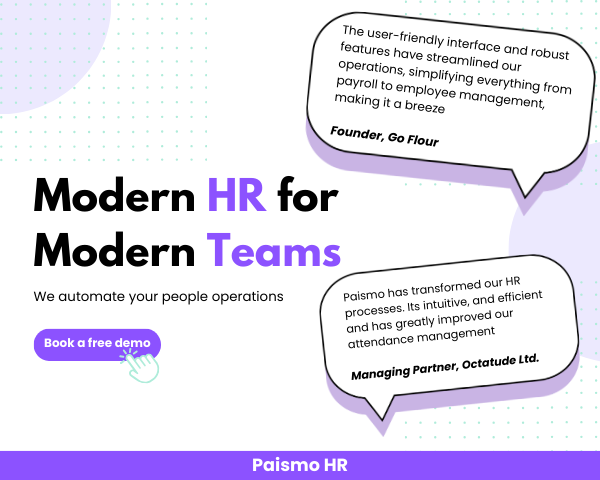Highlights
- Encourage strong attendance by rewarding employees who consistently show up and meet their scheduled work hours.
- Improve communication by providing a reliable channel for staff to report unexpected absences quickly and clearly.
- Support employees facing personal challenges by offering flexible schedules, training, or time management resources.
- Hire candidates whose availability matches your scheduling needs to reduce conflicts and unexpected absences.
A key part of being a leader is making it clear how employees should manage their presence at work. When an employee fails to show up for a shift without any notice, it not only disrupts operations but also affects team morale. By addressing no call no show case immediately and establishing clear consequences, you create a standard that helps prevent similar problems in the future.
So, in this blog, we will discuss the importance of dealing with this action and what you should do if a new employee fails to show up for their first day.
What Is No Call No Show?
No call no show refers to an employee being absent or over 30 minutes late without informing management. Simply put, the employee misses their scheduled shift and fails to notify anyone about it.
Now, “a call” doesn’t always mean a phone call. It can also include approved communication methods such as email, text messages, or internal apps, whichever the company policy allows.
Interestingly, no call no show policy is not directly regulated under U.S. federal or state labor laws. This means there are no strict rules that dictate how employers or employees must handle this issue. In most cases, U.S. employers are legally allowed to terminate an employee who fails to show up and doesn’t notify the team, unless protected by a valid exception.
For instance, in Washington State, employees earn one hour of paid sick leave for every 40 hours worked. If someone qualifies under this rule and is dealing with a serious health issue, they are not legally required to inform their manager about their absence in advance. There are also other valid reasons, including family medical emergencies, mental health crises, or natural disasters.
Examples of Valid Reasons for No Call No Show
As mentioned earlier, there are genuine reasons why an employee might miss work without informing their manager. The following are among the most acceptable and valid reasons for a no-call no-show:
- Accidents: Serious incidents involving the employee or loved ones that require immediate attention.
- Emergencies: Life-threatening situations where health or safety is at risk, like fires or medical crises.
- Bereavement: Death of a close family member or someone emotionally significant to the employee.
- Transport Issues: Major problems like car breakdowns or public transit failures in isolated areas.
In such cases, it's understandable that an employee may be unable to call in due to the urgency or emotional stress involved. These scenarios are unfortunate but realistic, and that’s why they should be acknowledged when building your no call no show policy.
However, keep in mind that it’s rarely possible to define a one-size-fits-all list of valid excuses. Every situation should be evaluated fairly and individually. A thoughtful policy allows for some flexibility while clearly outlining which reasons are acceptable under company standards.
Why Is a No Call No Show Policy Important?
Creating a clear no call no show policy offers multiple benefits for your company. It not only sets expectations but also protects the business from repeated absenteeism. At the same time, it helps employees understand what actions are required and what consequences follow if they miss work without notice.
Let’s explore the key reasons why this policy is essential:
1. Boosts Employee Productivity
One of the biggest advantages of a no-call no-show policy is improved productivity. When an employee misses work without notice, their coworkers often have to take over their tasks. This creates extra stress, disrupts workflows, and can lead to burnout over time. While it’s impossible to eliminate all last-minute absences, having a clear policy helps reduce how often they occur, keeping productivity high.
2. Prevents Abuse of Attendance Systems
Without clear rules, some employees may exploit outdated attendance systems. If there are no consequences, no call no show behavior may continue unchecked.
A written policy helps set boundaries. It tells employees what is expected and outlines what will happen if they don’t follow those expectations. This structure discourages misuse and encourages accountability.
3. Helps Reduce Operational Costs
Every unplanned absence can cost your company money. Whether you're paying overtime to other staff or hiring last-minute replacements, the expenses add up quickly. A no call no show policy helps avoid these extra costs.
Here’s how:
- Lower Overtime Expenses: Covering for absent employees often means paying others to work longer hours. By discouraging no-shows, your company can avoid these rising overtime costs.
- Less Need for Temp Workers: Temporary workers are expensive, especially when hired on short notice. Reducing no-shows lowers your reliance on them.
- Reduced Absenteeism Costs: The CDC reports that absenteeism costs U.S. employers over $225 billion each year. A strong policy reduces the frequency of these incidents and minimizes avoidable expenses.
4. Promotes Accountability
Finally, a no call no show policy improves workplace culture by promoting responsibility. It encourages employees to take their attendance seriously and to communicate when they can’t show up. This builds a more reliable team and supports long-term business stability.
Tips for Preventing No Call No Shows As an Employee
While it's useful to have a plan for no call no show cases, they’re still disruptive. You may end up understaffed, customer service can suffer, and other employees feel the pressure. If the absence leads to termination or resignation, you’ll also need to adjust schedules and find replacements. That’s why it’s better to focus on preventing no-call no-show situations in the first place:
1. Encourage Good Attendance
Part-time and seasonal workers often juggle multiple responsibilities. To reduce no call no show issues, reward good attendance with bonuses, preferred shifts, or raises. Set clear rules; repeated NCNSs should disqualify employees from future rewards.
Make tracking and rewarding attendance effortless with the Paismo time tracker, our easy-to-use tool that gives you real-time visibility into attendance patterns, making it simple to spot top performers and enforce fair policies. Try our HRMS software now and see how it transforms workforce reliability.
2. Ensure Reliable Communication
Many NCNSs happen due to communication gaps. Use a reliable team chat app where employees can message directly and get auto-confirmations. This reduces excuses and helps everyone stay informed.
3. Offer Support When Needed
Frequent NCNSs may signal deeper issues. Offer flexible schedules, time management training, or support for personal emergencies. A little help can improve reliability and morale.
4. Create a Clear Absence Policy
Document how to report last-minute absences and what counts as a valid reason. Share this during onboarding and enforce fair disciplinary actions. This sets expectations without punishing unavoidable absences.
5. Respect Employee Availability
Scheduling conflicts cause many no-shows. Collect availability upfront and build schedules around it. Use alerts to avoid conflicts and make staff feel respected.
6. Enable Self-Scheduling
Allow staff to swap shifts through an app instead of missing work for personal plans. Self-scheduling empowers your team and reduces last-minute no-shows.
7. Hire Based on Schedule Fit
If scheduling issues persist, review your hiring process. List required shifts in job ads and ensure candidates can commit. Hiring the right reduces NCNSs long-term.
Summary
Responding to no call no show situations can be tough, but preventing those situations is a better strategy. Clearly explaining policies, improving how everyone communicates, and caring about workers’ needs usually reduce mistakes and create a strong team. Supporting your staff and finding the best people can help operations go smoothly and encourage more employees to show up.
Become a part of the Paismo community
Paismo is an HR software that can help simplify your HR operations. In today's dynamic economic environment, efficient HR and automated payroll management are no longer a luxury but a necessity. Paismo is a comprehensive solution that transforms traditional HR complexes into streamlined and automated workflows. Paismo and its paired biometric device integration can be used for your business to mark employee attendance and record their timesheets accurately.
Paismo simplifies your tasks with its core HRMS, timesheets, and attendance management, as well as biometric attendance, payroll automation, and leave management system.
Take the first step toward modernizing your HR and payroll processes and explore what Paismo can do for you. Book a demo with our sales team.











